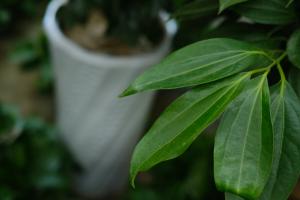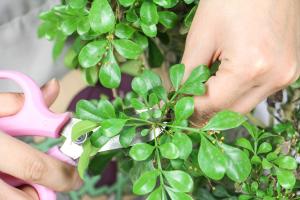Introduction
Taking care of an orchid plant might seem like a daunting task for beginners, but with the right knowledge and a bit of patience, it can be a rewarding experience. Orchids are known for their beautiful and unique flowers, and they come in a variety of species that require different care. In this article, we鈥檒l provide you with some general tips on how to take care of your orchid plant and help it thrive.
Lighting and Temperature
One of the most important factors for orchid plant care is lighting. Orchids require bright but indirect light to grow, and direct sunlight can burn their leaves. You can place your orchid plant near an east or west-facing window to ensure it gets plenty of light without being exposed to direct sunlight. If your orchid is not getting enough light, its leaves may turn yellow, and it will not produce flowers.
Temperature is another crucial aspect of orchid care. Orchids prefer temperatures between 60-85掳F during the day and around 55掳F at night. Avoid placing your orchid plant in a drafty area or near heating or cooling vents, which can cause temperature fluctuations that orchids don't like.
Watering and Humidity
Orchids require regular watering, but overwatering can be detrimental to their health. It鈥檚 essential to let the orchid's roots dry out partly before watering it again. Depending on the humidity level of your home, you'll want to water your orchid plant about every seven to ten days. You can check the orchid's soil moisture level by sticking your finger about an inch into the soil. If it feels dry, it's time to water it.
Humidity is also an important factor for orchid care, as most orchids prefer a humid environment. If the air in your home is dry, consider using a humidifier near your orchid plant. Alternatively, you can place a tray filled with water and pebbles under your orchid's pot to provide some humidity.
Fertilizer and Repotting
Orchids require specific fertilizers that contain essential nutrients they need. Use a fertilizer formulated for orchids every two to three weeks during the growing season, which is typically from spring to fall. Avoid using too much fertilizer, which can cause salt buildup and damage your orchid's roots.
Orchids need to be repotted periodically, depending on their species and size. Repotting is necessary when the potting mix has started to decompose, when the roots have outgrown the container, or when the plant has become too large for its current pot. It's best to repot your orchid plant in the spring or early summer when it's actively growing.
Conclusion
Taking care of an orchid plant requires some knowledge and effort, but the beauty of their flowers is well worth it. Remember the essential elements of orchid plant care鈥攍ighting, temperature, watering, humidity, fertilization, and repotting鈥攖o ensure your orchid thrives in its environment. With a little bit of care and attention, your orchid will produce beautiful blooms for years to come.

 how many times do yo...
how many times do yo... how many planted tre...
how many planted tre... how many pine trees ...
how many pine trees ... how many pecan trees...
how many pecan trees... how many plants comp...
how many plants comp... how many plants can ...
how many plants can ... how many plants and ...
how many plants and ... how many pepper plan...
how many pepper plan...































